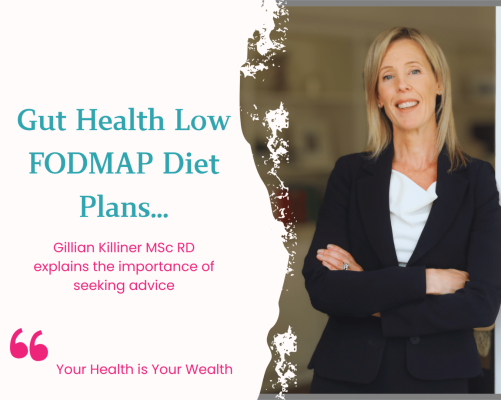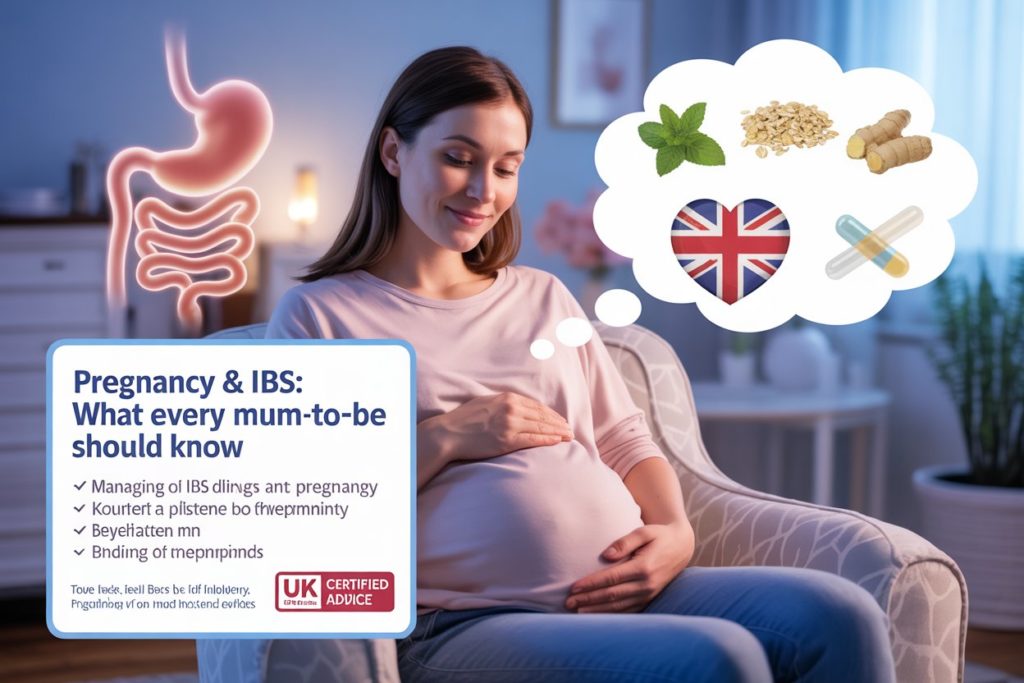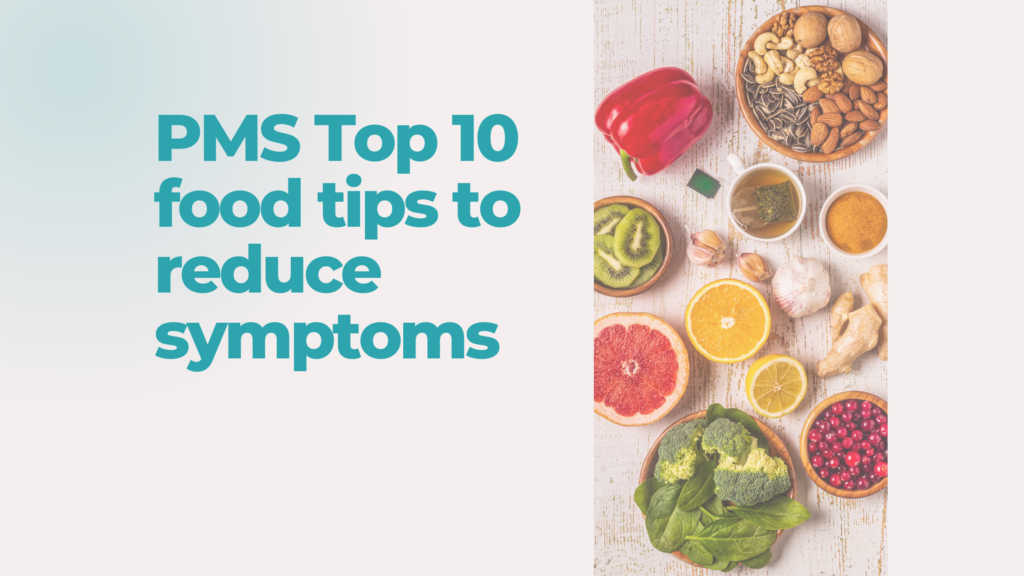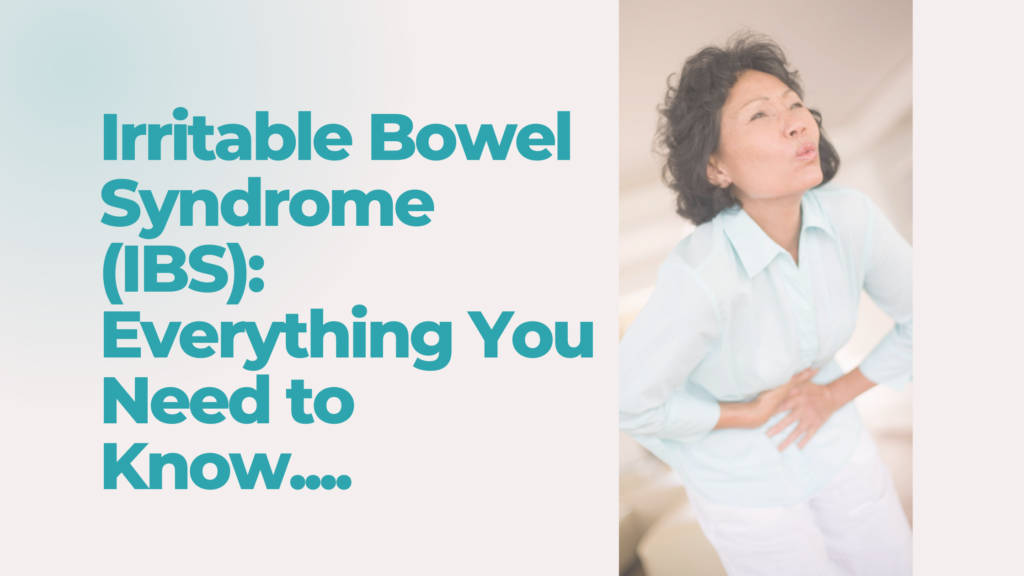The Future of Gut Health: Why Personalised Microbiome Nutrition is 2025’s Biggest Wellness Revolution

The Future of Gut Health: Why Personalised Microbiome Nutrition is 2025’s Biggest Wellness Revolution Are you struggling with unexplained fatigue, digestive discomfort, or mood swings that seem to have no clear cause? The answer might lie in the trillions of microorganisms living in your gut. As we move through 2025, personalised microbiome nutrition has emerged as the most significant breakthrough in nutritional science, transforming how we approach digestive health and overall wellbeing. What Makes Personalised Microbiome Nutrition So Revolutionary? Ongoing research reveals that no two gut microbiomes are identical – much like fingerprints. What works brilliantly for your friend’s digestive issues might not be the right approach for you. This realisation has sparked a revolution in how nutrition professionals approach gut health treatment.The latest studies show that personalised microbiome interventions can improve immunity by up to 20% compared to generic approaches. This isn’t just about reducing bloating or improving digestion – we’re talking about enhancing your entire immune system, mental clarity, and energy levels. The Science Behind Your Unique Gut Ecosystem Your gut microbiome consists of over 1,000 different species of bacteria, each playing a crucial role in: Immune function – 70% of your immune system resides in your gut Mood regulation – The gut-brain axis directly influences mental wellbeing Nutrient absorption – Certain bacteria help extract vitamins and minerals from food Inflammation control – A balanced microbiome reduces chronic inflammation Key Trends Shaping Gut Health in 2025-26 1. Precision Nutrition Based on Microbiome Testing Gone are the days of one-size-fits-all dietary advice. Advanced microbiome testing now allows nutrition professionals to create truly personalised nutrition plans based on your unique bacterial composition. 2. Next-Generation Prebiotics and Probiotics The focus has shifted from generic probiotics to targeted strains that support your specific microbiome needs. Prebiotic fibres are taking centre stage as the fuel that feeds your beneficial bacteria. 3. Food as Medicine Approach Rather than relying solely on supplements, the emphasis is on using whole foods to naturally cultivate a diverse and resilient gut microbiome. Signs Your Gut Microbiome Needs Attention Do any of these sound familiar? Persistent digestive discomfort or irregular bowel movements Frequent colds or infections Unexplained fatigue or brain fog Mood swings or anxiety Food intolerances that seem to multiply Difficulty maintaining a healthy weight These symptoms often indicate an imbalanced gut microbiome that could benefit from personalised nutritional intervention. The Power of Professional Guidance Whilst the internet is full of generic gut health advice, working with a qualified nutrition professional who understands the complexity of microbiome science can make all the difference. A personalised approach considers your unique bacterial profile, health history, lifestyle factors, and specific symptoms. Supporting Your Gut Health Journey One evidence-based supplement that consistently shows benefits for gut health is high-quality magnesium. Magnesium plays a crucial role in supporting the gut-brain connection and promoting healthy digestive function.Better You Original Magnesium Spray offers excellent bioavailability through transdermal absorption, making it particularly beneficial for those with digestive sensitivities. Simply spray 10 times onto your abdomen before bed and massage in – it’s that simple! Your Next Steps Towards Optimal Gut Health Understanding your unique microbiome is the first step towards transforming your digestive health and overall wellbeing. Rather than guessing which foods and supplements might help, a personalised approach based on scientific assessment can provide the targeted support your gut needs.Ready to discover what your gut is trying to tell you?Our comprehensive Gut Health Course provides you with the knowledge and tools to understand your digestive system, identify your unique triggers, and create a personalised nutrition plan that works specifically for you.This self-paced programme includes: Step-by-step modules covering the gut-brain connection Personalised dietary guidelines and recipes Symptom tracking tools and shopping lists Ongoing support to ensure lasting results Don’t let digestive issues control your life any longer. Join hundreds of others who have transformed their gut health and reclaimed their energy, mood, and overall wellbeing.Enrol in our Gut Health Course today and start your journey towards optimal digestive wellness. Ready to take control of your gut health? Book a personalised consultation with our expert team at 121 Dietitian. With over 30 years of experience in nutrition science, we’ll help you create a targeted plan that works specifically for your unique needs. If you want to book your programme TODAY we would love to help you. You can book a 121 Dietitian Programme today by clicking on the link below Book Now
Understanding Fatty Liver Week: Your Liver’s Health in Focus

Fatty Liver Week is an important yearly campaign that aims to educate people about fatty liver disease—a growing health problem affecting millions worldwide. The goal of this event is to raise awareness, encourage early detection, and promote healthy lifestyle changes to prevent liver damage. Many people don’t realize they have fatty liver disease because it often shows no symptoms in the early stages. Fatty Liver Week helps change that by providing information, organizing screenings, and bringing together doctors, patients, and communities to fight this silent but serious condition. Liver health is crucial because the liver plays a key role in filtering toxins, processing nutrients, and supporting digestion. However, fatty liver disease—caused by too much fat buildup in liver cells—is becoming more common due to poor diets, lack of exercise, obesity, and excessive alcohol use. In fact, about 1 in 4 people globally have non-alcoholic fatty liver disease (NAFLD), while others develop alcohol-related liver damage. If ignored, fatty liver disease can lead to severe problems like liver scarring (cirrhosis) or even liver failure. The good news is that early detection and lifestyle changes can often reverse the condition, which is why awareness campaigns like Fatty Liver Week are so important. During Fatty Liver Week, expert dietitians from 121 Dietitian will explain why taking care of your liver is so important. The goal of this awareness campaign is to educate you about how fatty liver disease develops silently and, if left untreated, can lead to serious complications like liver inflammation, cirrhosis (scarring), and even liver failure. 121 Dietitian will not only help you recognise early warning signs of fatty liver disease—such as fatigue, mild discomfort on the right side of the abdomen, or general unease—but will also provide personalized guidance to improve your diet, lifestyle, and physical activity. The purpose of this week is not just to share information but to prepare you for action, so you can keep your liver healthy. With 121 Dietitians, you won’t have to follow a restrictive diet or feel confused—we’ll be with you every step of the way to support your health journey. What is Fatty Liver Disease? Fatty liver disease, known previously as hepatic steatosis, and more recently as Metabolic dysfunction-associated steatotic liver disease (MASLD), is a condition characterised by an excessive buildup of fat in the liver. There are two primary types: non-alcoholic fatty liver disease (NAFLD) and alcoholic fatty liver disease (AFLD). MASLD occurs in individuals who consume little to no alcohol and is often linked to metabolic disorders such as obesity and type 2 diabetes. AFLD, on the other hand, results from excessive alcohol consumption, which impairs the liver’s ability to break down fats, leading to fat accumulation. The causes and risk factors of fatty liver disease vary depending on the type. For MASLD, key contributors include obesity, insulin resistance, type 2 diabetes, high cholesterol, and a diet high in processed sugars and unhealthy fats. AFLD is directly caused by chronic alcohol abuse, but poor nutrition can exacerbate liver damage. Additional risk factors for both types include sedentary lifestyles, rapid weight loss, and certain medications. In its early stages, fatty liver disease often presents no noticeable symptoms, making it a “silent” condition. However, as the disease progresses, some individuals may experience fatigue, abdominal discomfort (particularly in the upper right side), unexplained weight loss, or mild jaundice (yellowing of the skin and eyes). Since symptoms are frequently absent or vague, early detection through blood tests or imaging is crucial to prevent complications such as liver inflammation (steatohepatitis), fibrosis, or cirrhosis. Maintaining a healthy weight, limiting alcohol intake, and eating a balanced diet are key preventive measures. The Significance of Fatty Liver Week Fatty Liver Week is an essential awareness campaign dedicated to educating the public about non-alcoholic fatty liver disease (NAFLD) and its more severe form, non-alcoholic steatohepatitis (NASH). These conditions, often linked to obesity, diabetes, and poor lifestyle choices, are becoming increasingly prevalent, yet many people remain unaware of the risks and consequences. The campaign aims to highlight the importance of liver health, promote early detection, and encourage lifestyle modifications to prevent irreversible liver damage. By fostering greater understanding and proactive health management, Fatty Liver Week plays a crucial role in reducing the burden of this silent but potentially deadly disease. Goals of the Awareness Campaign The primary objectives of Fatty Liver Week are to raise public awareness about the causes, risks, and consequences of fatty liver disease, as well as to dispel common misconceptions. The campaign seeks to emphasise that MASLD/NAFLD is not solely caused by alcohol consumption but is heavily influenced by metabolic factors such as poor diet, sedentary habits, and insulin resistance. Additionally, it aims to encourage individuals to assess their risk factors, seek medical advice if necessary, and adopt healthier lifestyles to mitigate the progression of the disease. Another key goal is to advocate for better healthcare policies and resources to support early diagnosis and effective treatment. Key Messages (Prevention, Early Detection, Lifestyle Changes) Fatty Liver Week centres around three key messages: prevention, early detection, and sustainable lifestyle changes. Fatty Liver Week is not just about raising awareness—it’s about taking meaningful action. With the right advice and support from trusted professionals like 121 Dietitian, you can take control of your liver health and make lasting improvements. How Organisations and Health Professionals Participate During Fatty Liver Week, various organisations—including liver health charities, medical institutions, and public health bodies—actively participate by organising educational events, webinars, and community screening programmes to raise awareness about liver health and the importance of early detection. Social media campaigns, informative infographics, and expert-led discussions help to disseminate accurate information to a broad audience. Healthcare professionals such as hepatologists, GPs, and dietitians play a crucial role in this effort. 121 Dietitian is a key contributor to this campaign, offering free consultations, personalized nutrition plans, and expert advice tailored to support liver health and manage fatty liver disease effectively. Their practical approach helps individuals adopt balanced diets, achieve sustainable weight loss, and embrace healthier lifestyles. Collaborative
What to Eat (and Avoid) If You Have Leaky Gut

Leaky gut, or “increased intestinal permeability”, is a condition in which the walls of your intestines become loose. This allows harmful substances like bacteria, toxins, and undigested food to leak into the bloodstream. Though it is not officially recognised as a medical diagnosis, many researchers and practitioners believe it plays a role in several health issues. Conditions like coeliac disease and type 1 diabetes are often linked with leaky gut. One major cause is an increase in a protein called zonulin, which can weaken the tight junctions in the intestinal lining. Gluten, commonly found in wheat, can also trigger this condition in some people—especially those with gluten sensitivity or coeliac disease. Taking nonsteroidal anti-inflammatory drugs (NSAIDs) like aspirin and ibuprofen for long periods can damage the gut lining as well. Another factor is a low level of healthy gut bacteria, a condition known as gut dysbiosis. To help manage or reduce symptoms of leaky gut, many experts suggest avoiding processed foods, and eating more gut-friendly foods such as fibre-rich vegetables, fermented foods, and healthy fats. A balanced diet along with good lifestyle habits may help improve overall digestive health. However, there are times that this advice is not enough or just not working, and further help is required. Gillian Killiner RD is an expert Gut Specialist Dietitian who will help you address your gut health. Benefits of a Leaky Gut Diet A leaky gut diet is designed to support and heal the gut by focusing on nutrient-rich foods that help repair the intestinal lining while avoiding foods that can cause irritation or worsen symptoms. The primary goal of this diet is to ease digestive discomfort, reduce inflammation inside the intestines, and restore the natural balance of the gut microbiome — the community of good bacteria that plays a crucial role in digestion and immune health. Research shows that following a leaky gut diet can provide several important benefits: Beyond digestive health, the leaky gut diet may also ease symptoms linked to autoimmune diseases and chronic inflammation. This is because leaky gut can trigger the immune system to overreact, leading to problems like allergies, joint pain, and skin issues. Improving gut health programme provide information spend healthy life through diet may reduce these wider health problems. Key nutritional components in the leaky gut diet include: How Long Should You Follow a Leaky Gut Diet? The duration depends on individual needs and the severity of gut damage. Some people may only need to follow the diet temporarily, often for a few weeks to a few months, to allow their gut lining to heal and symptoms to improve. During this time, removing irritants like processed foods, sugar, and artificial additives is key. For those with chronic conditions such as autoimmune diseases or long-term digestive issues, maintaining a leaky gut diet long-term can help prevent flare-ups and keep symptoms under control. A permanent lifestyle change may be necessary to maintain gut health and overall well-being. It’s important to remember that healing the gut takes time and patience. Combining the diet with other healthy habits, such as managing stress, getting enough sleep, and regular exercise, can improve results. Consulting with a healthcare professional or dietitian is recommended to tailor the diet to your specific needs and ensure balanced nutrition. Heal Your Gut with These Simple, Natural Foods Leaky gut, also known as increased intestinal permeability, happens when the lining of the gut becomes damaged. This allows harmful substances like toxins and undigested food to pass into the bloodstream, causing inflammation and other health issues. To support the healing process, it’s important to focus on eating natural, gut-friendly foods and avoid those that cause further harm. 1. Natural, Whole Foods Start by choosing foods in their natural form—those that are fresh and not heavily processed. These include: Avoid processed and packaged foods such as crisps, frozen pizza, cakes, sugary cereals, and artificial sweeteners. These often contain additives, preservatives, and unhealthy fats that can damage the gut lining and disrupt the balance of gut bacteria. 2. High-Fibre Foods Fibre plays a key role in gut health. It feeds the beneficial bacteria (also called probiotics) that live in the intestines. When these bacteria digest fibre, they produce short-chain fatty acids (SCFAs) that help strengthen the gut barrier and reduce inflammation. Examples of fibre-rich foods include: 3. Prebiotic Foods Prebiotics are specific types of fibre that help feed the good bacteria in your gut. They act as fuel, helping probiotics grow stronger and do their job better. Common prebiotic-rich foods include: 4. Whole Grains (for those who tolerate them) Whole grains like brown rice, quinoa, and oats contain fibre, B vitamins, and minerals that can support overall gut function. However, people with gut sensitivity or gluten issues should be cautious. Grains that are soaked, sprouted, or fermented are often easier to digest. 5. Fermented Foods Fermented foods are natural sources of probiotics, which are live beneficial bacteria. These help restore a healthy balance of bacteria in the gut, which is especially helpful if the gut has been damaged by antibiotics, stress, or poor diet. Examples include: 6. Gut-Friendly Vegetables and Fruits Some vegetables and fruits are easier to digest and less likely to cause bloating or irritation. They also offer nutrients and antioxidants that fight inflammation. Helpful vegetables include: Helpful fruits include: 7. Nuts, Seeds, and Healthy Dairy Options Nuts and seeds offer healthy fats, fibre, and minerals. These include: For dairy, choose: Harmful Foods That Can Damage Gut Health and Trigger Bloating, Gas, and Inflammation When managing leaky gut, it’s important to avoid certain foods that can damage your gut lining, disturb your gut bacteria, or trigger bloating and inflammation. 1. Artificial SweetenersDrinks and foods with artificial sweeteners, such as diet sodas or sugar-free snacks, can upset the balance of good bacteria in your gut. These sweeteners, including xylitol and sorbitol, are hard to digest and may worsen gut issues. 2. Processed MeatsItems like sausages, burgers, and meat used in fast food often contain preservatives and
Pregnancy and IBS: What Every Mum-to-Be in the UK Should Know

Irritable Bowel Syndrome (IBS) is a common condition that affects the digestive system. It often causes stomach pain, bloating, gas, and changes in bowel habits like diarrhoea or constipation. Many women experience IBS during pregnancy or may already have it before becoming pregnant. During pregnancy, hormone changes, stress, and pressure on the stomach can sometimes make IBS symptoms worse. It’s important for pregnant women with IBS to understand how pregnancy might affect their condition. This helps them manage symptoms better and stay comfortable. Eating a healthy diet, staying hydrated, managing stress, and getting regular checkups can support both digestive health and a healthy pregnancy. How Pregnancy Affects IBS Symptoms: Causes and Changes During pregnancy, a woman’s body goes through many changes, especially in hormone levels. These changes can affect different parts of the body, including the digestive system. Some women notice that their symptoms of Irritable Bowel Syndrome (IBS) improve during pregnancy, while others may find that their symptoms get worse. Some women may notice their symptoms get worse, while others might find them improving. 🔺 Why can symptoms get worse? 🔻 Why can symptoms get better? As the baby grows, it puts pressure on the intestines. This can slow down digestion and cause discomfort. If you have IBS during pregnancy, you might face issues like increased gas, stomach pain or cramps, constipation, or sometimes diarrhoea. These symptoms can sometimes feel like normal pregnancy discomforts, which makes it hard to tell the difference. That’s why it’s important to monitor any changes and talk to your doctor if you notice anything unusual. How to Safely Manage IBS During Pregnancy? Managing IBS (Irritable Bowel Syndrome) during pregnancy needs extra care. It’s important to work closely with your doctor or a qualified dietitian. They can help you follow a plan that keeps both you and your baby safe. Experts like 121 Dietitian specialise in digestive health and give special advice for pregnant women. They may suggest a gentle version of the Low FODMAP Diet. Gillian Killiner, RD, is an expert dietitian specialised in gut health. She has helped many patients recover using her unique and science-based programs. At 121 Dietitian, we believe in offering patients the latest medical and research-backed treatments. We are proud to provide this special care to our clients. One key program we offer is the Low FODMAP Diet for IBS (Irritable Bowel Syndrome). This diet has been successful for over 75% of people worldwide, while the official UK guidelines show about 30% success. But at 121 Dietitian, our success rate is even higher—95%. This is because we treat the whole person, not just the symptoms. Our detailed and personal approach sets us apart, especially in Northern Ireland. Gillian Killiner was the first dietitian in London trained in Low FODMAP Diet in 2011. Since then, she has been a source of hope for people with IBS, whether in Northern Ireland, the UK, or other countries. Why choose our Gut Health program? Many patients come to us after trying many tests and treatments with no success. Some have avoided certain foods for years but still have gut problems. When foods are removed incorrectly, the body can lack important nutrients like protein, vitamins, and minerals. This can cause tiredness, weakness, sadness, and other health issues. Also, some medicines for acid reflux or stomach pain can reduce nutrient levels over time, making problems worse. That is why we created different Gut Health programs in Belfast to solve these common but serious issues. Every person gets a customised plan. This may include the Low FODMAP Diet to reduce symptoms and improve health. This helps reduce symptoms like bloating or stomach pain, without causing any lack of nutrition. Helpful Food Tips for Pregnant Women with IBS: Always talk to a healthcare expert before making any changes to your diet during pregnancy. Every person is different, and a personalised plan works best. Managing IBS During Pregnancy: Simple and Effective Tips The methods you used before to manage IBS can still help now: Eat small amounts frequently. This helps your stomach handle food better. Drink plenty of water to keep your digestion smooth. Avoid stress as it can make IBS worse. Stay away from foods that trigger your symptoms, like very oily or spicy dishes. Increase fibre slowly in your diet. There are two types of fiber: Both affect IBS differently. Adding too much fibre suddenly can make symptoms worse. Slowly add fibre from fruits, vegetables, seeds, and whole wheat bread. Keep your diet balanced. If you are following a Low FODMAP diet, talk to your doctor. They can guide you on how to get the right nutrients during pregnancy to keep your baby healthy. Include natural probiotics in your diet. These are good bacteria found in yogurt, fermented drinks, or supplements. Probiotics may improve digestion. Always check with your doctor first. Exercise lightly, like walking or safe pregnancy exercises. Exercise helps your digestion and also relaxes your mind.At 121 Dietitian, we also help women with IBS flare-ups during pregnancy. We create a special diet plan that can give you relief from symptoms. You can join our Gut Health Programme, where we guide you step-by-step on how to take care of yourself during pregnancy with IBS. We will provide you with the right advice and support to manage your health in the best way possible. FAQs What should I avoid with IBS in the UK? Avoid foods that trigger your symptoms, like fatty foods, caffeine, alcohol, spicy foods, and some dairy products. Also, reduce stress and avoid eating large meals. Should I go to work if I have IBS? Yes, you can go to work and we help people take control again so they can return. Managing symptoms with a good diet, regular bathroom breaks, and stress control helps you stay comfortable. Is IBS considered a disability in the UK?IBS is usually not classed as a disability unless symptoms are very severe and affect daily life. Some people may get extra support if their IBS is
PMS Top 10 food tips to reduce symptoms

Up to 75% of women will experience premenstrual syndrome (PMS) at some point in their reproductive years. Symptoms of PMS include mood swings, exhaustion, bloating, and cravings. As a specialised dietitian, I have personally witnessed the transformative power of nutrition in lowering PMS symptoms and enhancing quality of life.
It is commonly believed that avoiding foods and drinks like fat, chocolate, processed sugars, caffeine, fizzy minerals, and alcohol can make symptoms worse for those who consume them. Depending on your symptoms, health, and dietary habits, this may be beneficial. However, did you know that there are a variety of foods that are simple to include in your diet? These foods are not only perfect for people with PMS, but everyone can benefit from them!
Irritable Bowel Syndrome (IBS)- everything you need to know..

Struggling with bloating, cramps, or unpredictable bowels? You might be one of the millions affected by Irritable Bowel Syndrome (IBS). In this blog, expert Dietitian Gillian Killiner explains the causes, symptoms, and evidence-based strategies to manage IBS — including how personalised nutrition and lifestyle changes can help you take control of your gut health.